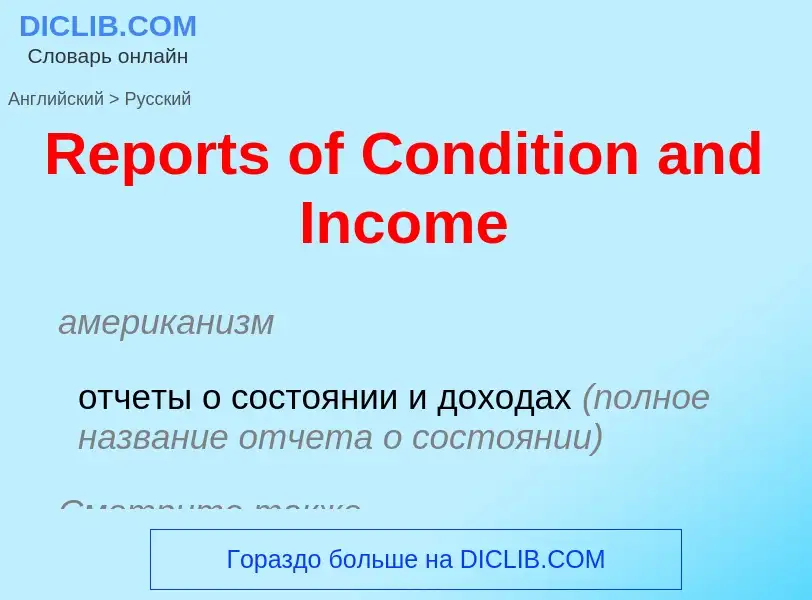Traducción y análisis de palabras por inteligencia artificial ChatGPT
En esta página puede obtener un análisis detallado de una palabra o frase, producido utilizando la mejor tecnología de inteligencia artificial hasta la fecha:
- cómo se usa la palabra
- frecuencia de uso
- se utiliza con más frecuencia en el habla oral o escrita
- opciones de traducción
- ejemplos de uso (varias frases con traducción)
- etimología
Reports of Condition and Income - traducción al Inglés
американизм
отчеты о состоянии и доходах (полное название отчета о состоянии)
Смотрите также
общая лексика
национальный доход
Definición
Wikipedia

The Condition-of-England question was a debate in the Victorian era over the issue of the English working-class during the Industrial Revolution. It was first proposed by Thomas Carlyle in his essay Chartism (1839). After assessing Chartism as "the bitter discontent grown fierce and mad, the wrong condition therefore or the wrong disposition, of the Working Classes of England", Carlyle proceeds to ask:
What means this bitter discontent of the Working Classes? Whence comes it, whither goes it? Above all, at what price, on what terms, will it probably consent to depart from us and die into rest? These are questions.
The division of society and the poverty of the majority began to dominate the minds of the intelligentsia following the 1832 Reform Act. They called this the "Condition-of-England Question". This was closely linked to a growing sense of anger at the culture of amateurism in official circles which produced this misery. The question preoccupied both Whigs and Tories. The historian John Prest has written that the early 1840s witnessed "the middle of structural changes in the economy, which led many to question whether the country had taken a wrong turning. Would manufacturing towns ever be loyal? Was poverty eating up capital? Was it safe to depend upon imports for food and raw materials? Could the fleet keep the seas open? Or should government encourage emigration and require those who remained behind to support themselves by spade husbandry? These were the ‘condition-of-England’ questions".


